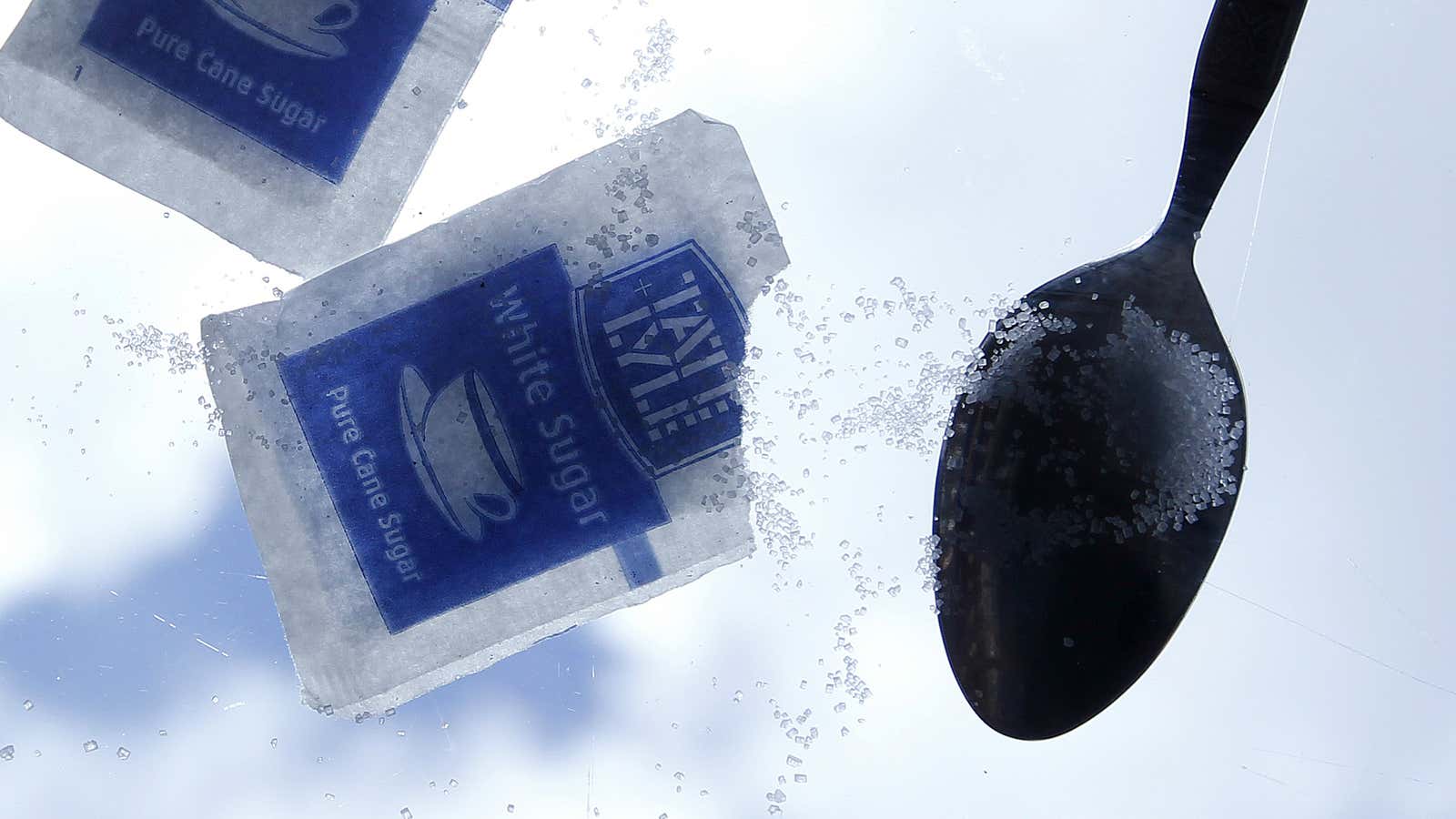A Singapore-based agribusiness company is sowing uncertainty among the globe’s commodities traders as it corners the market for sugar.
Last week, Wilmar International agreed to buy more than $500 million in sugar at the expiration of a contract on the ICE futures exchange. (Futures are agreements to buy or sell assets at a fixed price at a later date.) In 2016 alone, the company handled a whopping 8% of the world’s sugar production, according to the Wall Street Journal (paywall).
In the last two years, it has purchased about $2 billion in sugar futures contracts—more than 6 million tons—and is settling the contracts as they mature, acquiring the actual sugar, as opposed to selling on the contracts as they rise and fall in value. But dealing in that much of the sweetener is unusual behavior.
Purchasing sugar on the futures exchange can be more expensive for traders than if they bought sugar at today’s “spot” prices through the open market, but the extra expense can be worth it because of strict delivery guarantees. The futures exchange requires that purchased sugar be delivered within two-and-a-half months from the start of the contract.
That can be useful when logistical problems arise. Traders, such as Wilmar, who purchase sugar through futures, essentially lock in a supply, which can be helpful if poor weather, strong demand, or shipping problems crimp availability of the sweetener. A downside, though, is the extra expense, which can lead to slimmer profit margins.
In 2015, Wilmar purchased most of the world’s oversupply of sugar when prices were at multi-year lows, according to the Journal. Then, when sugar prices more than doubled in the following year, Wilmar sold the sweetener back into the market, sending prices plunging by 24%. The resulting confusion among traders has made sugar all the more volatile in the commodities marketplace.
Wilmar gained a foothold in the sugar market relatively recently, in 2010, after its $1.54 billion takeover of CSR’s Australian sugar business. In 2016, it earned $125 million from its sugar business. But Wilmar’s actions have caused a stir among global traders.
And Wilmar’s annual reports suggest markets traders shouldn’t expect the new entrant to disappear anytime soon. Indeed, Wilmar has been forging partnerships with sugar producers and refineries in Indonesia, Morocco, India, and Brazil—a sign it will be enlarging its influence in the world of sugar.
